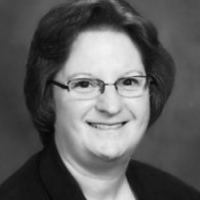This text-based course is a transcript of the webinar, “What Should I Do? – Ethical Considerations for SLPs who Work with Adults,” presented by Barbara Prakup, Ph.D., CCC-SLP.
>> Dr. Barbara Prakup: I want to thank you for taking time out of your schedule to explore the topic of ethics in the treatment of adults. I hope by the end of the presentation we may be closer to answering the question “What should I do?” I think the primary comment or theme I hear from clinicians when we talk about ethics is fear. “I am afraid I will not do the right thing. I am afraid I do not know what to do.” It is my hope to point you in the direction of some solid resources and to give you some confidence in using those resources. Before we get started, I would like to find out who is in the audience today. How many of you work in an acute care setting? How many of you work in a long-term acute care, otherwise known as ELTAC? How many of you work in a rehabilitation hospital, which would be an inpatient setting? How many of you work in a skilled nursing or extended care facility? How many of you work in home healthcare? How many of you work in other work settings that have not been mentioned? The survey says that the majority of attendees today work in the “other work settings,” which is interesting. Those other work settings include private practice, outpatient rehab, and schools. The second highest category was acute care, followed by skilled nursing and extended care facility, then followed by rehab hospital and home healthcare.
Overview
I would like to give you an overview of the topics that we will cover today. We have the introduction: What is ethics? How do you define it? Can you define it? How do you develop a working definition to become comfortable with the question, “What is ethics?”
I will spend quite a bit of time on professional resources, because in my discussions with colleagues about ethics, the most valuable thing they tell me is to point them in the right direction and give them a good resource that they can use to answer their questions. There is no way in one seminar or even one workshop to answer all ethical questions. However, to be confident in your ability to practice ethically, it is important to know where those solid resources are.
I will also talk through some ethical dilemmas when working with adults. I have a couple of case studies that I plan to discuss but I would also like to hear from you. I want to highlight and underscore that I am not an expert in ethics. I have done quite a bit of studying and done some gathering of resources, but I do need to stress that my role is to point you in the direction of those resources and give you a firm foundation to answer your questions. I certainly encourage any ideas, creative thoughts or creative solutions that you have come up with in your ethical decision-making.

